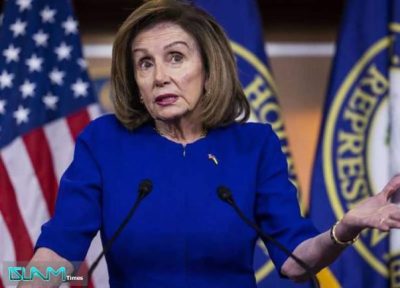Pelosi’s Expected Visit to Taiwan Challenges the “One China” Policy

All Global Research articles can be read in 51 languages by activating the “Translate Website” drop down menu on the top banner of our home page (Desktop version).
To receive Global Research’s Daily Newsletter (selected articles), click here.
Follow us on Instagram and Twitter and subscribe to our Telegram Channel. Feel free to repost and share widely Global Research articles.
***
US President Joe Biden said on July 21 that he could have a phone call with Chinese President Xi Jinping “within the next 10 days”. Asked by reporters about House Speaker Nancy Pelosi‘s upcoming visit to Taiwan, Biden, referring to the military, said “it’s not a good idea right now, but I don’t know what the status of it is.” Recently, Beijing has repeatedly stated that Washington is violating its “One China” policy, and promised to take firm retaliatory measures against US provocations.
Pelosi’s expected visit to Taiwan has been planned for a long time. The trip was originally scheduled for April, but was rescheduled due to Pelosi contracting COVID-19. Now the US media, citing sources familiar with the matter, said the visit could take place in August. However, there has been no official announcement from Pelosi or any US official yet.
Assuming Pelosi goes to Taiwan, it would be the first visit by a high-profile US official in a quarter of a century. The last major US official to visit was Speaker of the House of Representatives Newt Gingrich in 1997.
Beijing has always reacted harshly to any official contact with Taiwan, especially if the visit concerns raising the level of contacts and relations. Commenting on Pelosi’s possible visit, Chinese Ambassador to the US Qin Gang said that Washington is undermining the “One China” policy. For his part, the official representative of the Chinese Foreign Ministry, Zhao Lijian, promised to have a firm response to any US provocation.
Former Global Times editor-in-chief Hu Xijin even suggested that Chinese fighter jets could enter Taiwan’s airspace and escort Pelosi’s plane to land. He highlighted that Newt Gingrich is a Republican in opposition to Beijing whilst Bill Clinton, the President of the United States at the time, was a Democrat. As Pelosi is seen as an ally and partner of Biden, according to Hu Xijin, it is difficult to argue that her actions do not fit within the framework of the overall policy pursued by the White House.
Biden understands that Beijing’s reaction to the visit could be much sharper than it was in 1997. The Director of the Institute of American and East Asian Studies at Liaoning University, Lu Chao, believes that the White House is trying to keep bilateral relations from spiraling out of control as it is not currently in the US’s interest.
It is for this reason perhaps that Biden announced the upcoming phone call with President Xi Jinping. Meanwhile, the Chinese side did not confirm this arrangement, with Chinese Foreign Ministry spokesman Wang Wenbin saying he had no information to provide on the matter.
In the general context of escalating tensions, much will depend on further signals from Washington. Beijing hopes that the US will continue to comply with its obligations under the Three Joint Communiqués and will not cross a red line regarding Taiwan.
Should Pelosi make a visit to Taiwan, this, in addition to the foreign policy escalation risk described above, poses a domestic political risk for Biden. Being labeled a “lame duck” and “damaged goods” on the eve of the midterm elections is not the most favourable prospect, especially as Biden’s popularity continues to decline.
At the same time, if Pelosi cancels the visit, it could spark a wave of criticism from Republicans and anti-China people in Congress, who, in any case, accuse the current administration of not doing enough to be tough on China.
According to former US Secretary of State Henry Kissinger, the problem in US relations with China is that Washington is often guided by domestic political motives in formulating foreign policy, especially towards China. Recalling Nixon’s policy of establishing relations with Beijing, Kissinger noted that the US President at that time built a foreign policy in line with national interests and was not swayed by short-term domestic political motives. The current administration, according to Kissinger, is leading to a long and exhausting “endless confrontation” with China.
It is also this inconsistent foreign policy that sees the US swaying between prioritised confrontations with Russia and China depending on which political party is in power. Under Trump, differences with China widened while those with Moscow did not escalate further, something that has reversed under Biden. None-the-less, it remains to be seen how Pelosi’s anticipated visit to Taiwan will affect Sino-American relations.
*
Note to readers: Please click the share buttons above or below. Follow us on Instagram and Twitter and subscribe to our Telegram Channel. Feel free to repost and share widely Global Research articles.
Ahmed Adel is a Cairo-based geopolitics and political economy researcher.
Featured image is from InfoBrics

